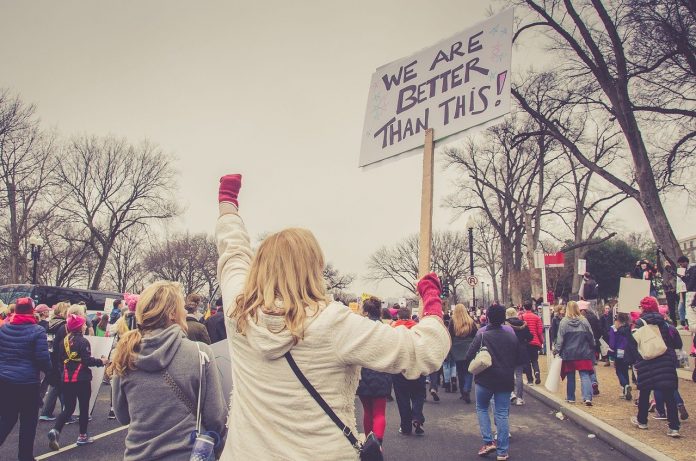The term ‘paternalism’ has the involvement of a certain degree of subordination having several explicit and implicit repercussions. Although subordination and repression are supposed to have two different meanings, they are mostly interlinked in the capacity of the state to govern. How much of the capacity and how it is utilized is at the center of several theories on authoritarianism and democracy. A closer look highlights the fact that when democracy is juxtaposed with paternalism, it tends to pursue the authoritarian path. Not only does it undermine the long-cherished democracy, but it also allows paternalism to reduce the distinction between the state and the government or leader. Recently, there have been many instances during which the powerful leaders have utilized the transformative characteristic of such democracy to fulfill their respective ends. This has allowed them to govern the nation according to their expediency while imperceptibly undermining the distinction that provided them with legitimacy in the first place.
The foremost reason behind the rise of such an order is the lack of reciprocity between the state and society. In a democratic country, people use political rights to elect a particular party that closely resembles their ideology, inclination, or socio-economic positions. Additionally, there are other cognitive factors like good governance, security, and prosperity adding to a certain kind of nationalism that is inter-territorial in nature i.e. the considerations of a rising power or an established hegemon. The cyclical process of the political system has an inherent disdain towards vacuum and when the latter does emerge, citizens look for an alternative that could provide them with stability, thereby generating a shift in the application of the political rights.
The general belief about the idea of democracy is that it safeguards the liberties of the people and sustains peace. While the formation of a coterminous relationship between an individual and the rights he/she is given by the constitutions of different countries, the advent of the debate on duties to the nation above individual rights has gained more traction. To simply define it, citizens are often reminded they don’t merit having rights if the duties are not performed. Moreover, the consent to such an order licences the government to systematically underline resistance as external to the society and antithetical to the state institutions. With the approval of the society, democratic paternalism attempts to centralize authority within a particular institution that transforms further into authoritarianism, the very idea which most of the democratic societies despise. Furthermore, the questions that arise from such an order are linked to the socio-political environment of a nation. What leads to democratic paternalism? How far has the government been able to persuade the people into understanding non-accountability as a prerequisite to effective governance? Why such an order has become increasingly prevalent amongst both individuals and community?
As the early step of Democratic Paternalism, a binary between virtue and vice is established that allows the aspects of consent formation to advance control over the narrative. The manner in which governments can persuade people into submitting to their respective instructions is closely linked to consent formation. However, the need for a political vacuum to emerge stands highly significant. The political vacuum permits the party in opposition to exploit the uncertainties present against the government in power. Though the methods employed are vociferously dissolute, it can successfully strengthen the objections against the government. The banalest way of gathering support is through promises of an affluent future. Mostly, the incumbent government is criticized for the lack of welfare and development which permits the competing parties to achieve traction amidst the rising uncertainty.
Another strategy utilized by the opposing parties is the manipulation of history to suit their respective description of the incumbent. The historical memory-making permits them to amalgamate with those suffering under the current establishment. By blaming the incumbent for the accumulated misery, the opposing parties seek to mobilize support. To add value to the distinction between virtue and vice, history acts as a thrust to maintain the on-going solidarity against the government. The established narrative gains recognition if and when violence is used to suppress non-violent movements, thereby transforming the uprising as an act of independence from the brutal regime. It permits the opposition to display the government as something external to the society that needs to be banished to establish peace. Not only does the successful mobilization permit the breakdown of legitimate authority, but it also eliminates the connection between the people and the government.
Due to the aforementioned reasons, there are higher chances of the opposite party coming to power with an immaculate majority of vote shares. The mobilization doesn’t end with an advantage in elections. Since the historical memory-making and affluent future tactics had already been utilized by the party when in opposition, it seeks to further entrench the narrative by spreading fear of anarchy. Having suffered in the past, the citizenry backs the new government because it promises them stable governance with an unflinching focus on national solidarity. The direct mobilization of people is replaced with an indirect mobilization where media, think-tanks, sectarianism is utilized to sustain the popularity of the new government. Religious or ethnic sectarianism is frequently operated to create an adversary that could cause more harm to society than the lack of progress. Furthermore, those defying the obligation are held accountable for the unfulfilled commitments of the new government. The mere act of holding dissent as accountable to the misfortunes achieves the main goal of democratic paternalism- non-accountability of the government as a prerequisite for effective governance. Therefore, it needs to be understood that not only does the government in power seeks to create a divide within society, by sustaining the divide it dissolves the distinction between state and government through such measures.
Through the curbing of distinctions, the government tries to reassert its authority vis-à-vis diminished liberty. By revoking the clause of accountability, it tends to limit the power vacuum through a patronage system, both with an individual and the community. This is where democratic paternalism introduces its final stage- a society paying allegiance to the government rather than the nation. Moreover, such measures are guided by the complete centralization of power and are most effective during calamities. In the longer run, the sectarian divide, declining freedom, bounded media, and a subservient judiciary leads to the collapse of society and later the political system.
As observed in countries such as India, the United States, Hungary, Brazil, and Russia, the fear-based governance has entrenched itself to a certain extent where the normalization of terror is equated with the preservation of rights and freedom. Then violence is directly exercised to fulfill the agenda of the government and every organ of the state becomes a victim of democratic paternalism. A few lines from the well-acclaimed work of J.S. Mill- On Liberty, “The peculiar evil of silencing the expression of an opinion is that it is robbing the human race- posterity as well as the existing generation- those who dissent from the opinion, still more than those who hold it. If the opinion is right, they are deprived of the opportunity of exchanging error for truth; if wrong, they lose, what is almost as great a benefit, the clearer perception and livelier impression of truth, produced by the collision with error.”

Prashant Rastogi is a PhD Candidate at the Jindal School of International Affairs (JSIA), O.P. Jindal Global University and a Senior Risk Analyst with WoRisGo. His research areas focus on digital communication and diplomacy by armed non-state actors, foreign policy of fragile states and populism.


